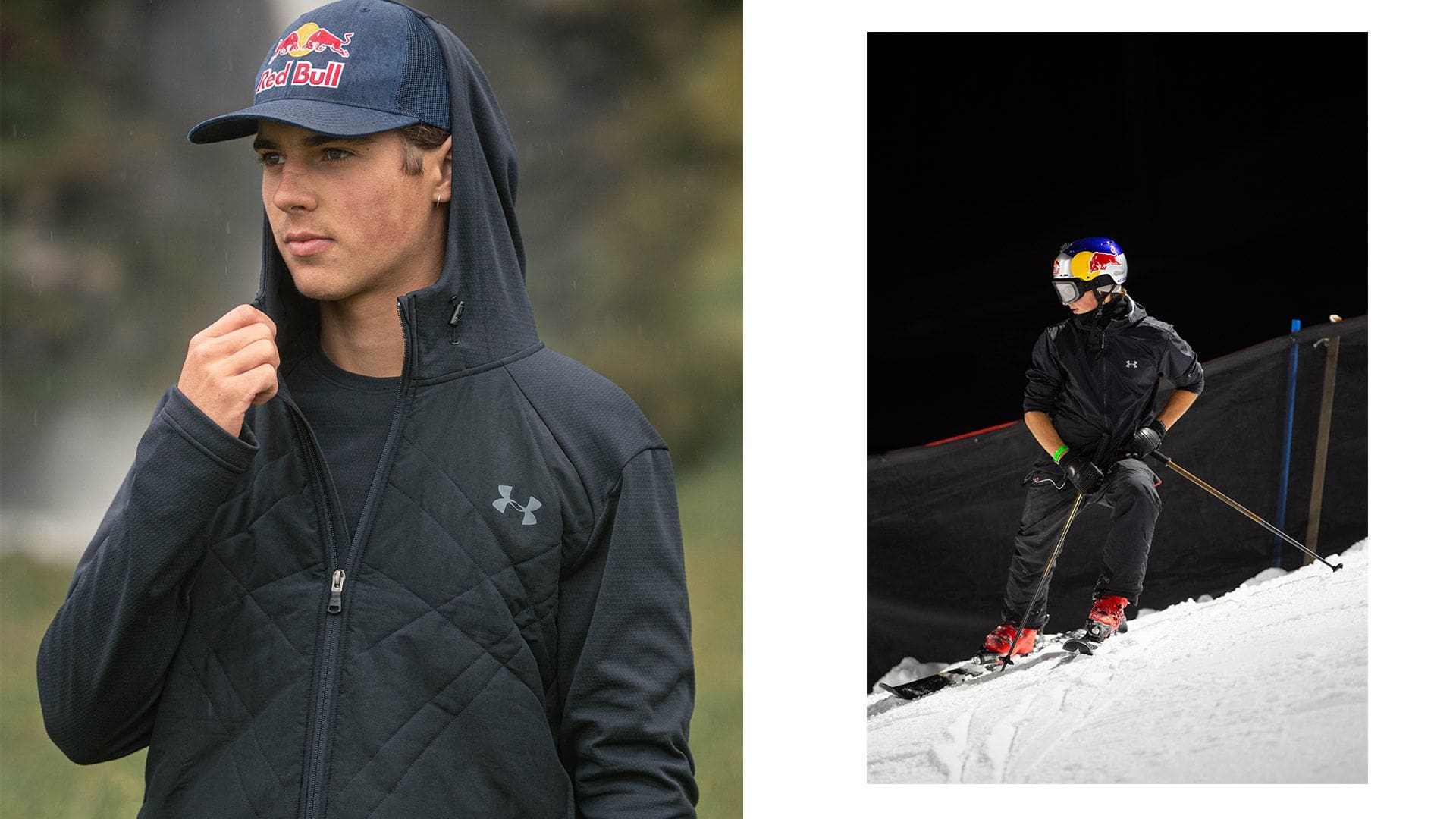Full Spin In Lockdown With Nico Porteous
For someone who isn’t yet 20, Freestyle Skier, Nico Porteous, has garnered more than a couple of lifetime’s worth of achievements. When he was 14, he became the youngest person in the world to land the triple cork 1440 (upside down three times, and four full spins). In 2018, he became the second-youngest Winter Olympian in New Zealand history. In the men’s halfpipe, he won the bronze medal, becoming only the third New Zealander (and first male New Zealander) to win a medal at a Winter Olympics.
This meant that at age 16 years 91 days, Porteous became New Zealand’s youngest Olympic Games medallist. In 2019, Porteous claimed the bronze medal in the superpipe event at the Winter X Games in Aspen, Colorado. We talk to Porteous midway through New Zealand’s Covid-19 Lockdown, where he is still keeping himself busy and prepared for future achievements.
How are you faring with lockdown?
Yeah, I’m good thanks. It’s going fast, to be honest, faster than I expected. I’ve been finding stuff to do, whether it’s running or doing workouts in the little home gym
I was watching a TV interview you did from a few years back and you talked about the fact that you don’t often stay inside, you’re always out there making the most of the world. Does it feel like a little bit of a shift in that respect for you?
Yeah, definitely. Obviously some days you’ve got to stay inside, but to be forced to stay inside is pretty gnarly.
Have you broken out the PS4?
I have but we don’t have great WIFI here, so I’ve only played one game of Call of Duty and that’s it. I’ve been keeping it pretty chill on the old gaming console.
Brilliant. What are you baking?
I’ve made lots of cookies. A couple of cakes. Easy stuff. After dinner, if I feel like something a bit sweet, I’ll make some cookies or something like that.
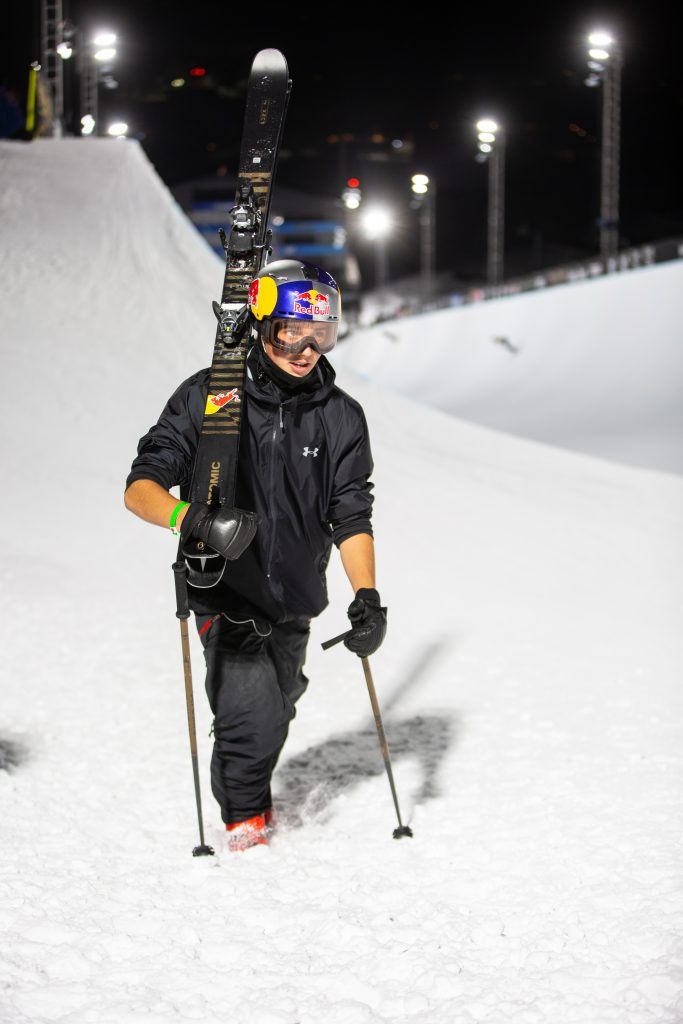
Have you got any advice, whether it’s nutritional, mental or fitness, for people who are grappling with this lockdown routine?
My advice would be just to find something of interest to them or find something you’ve never really done before that doesn’t require much equipment. Whether it’s baking, drawing, or doing crafts. Little things like that to help keep you occupied.
Another tip I also have is to try and get into a routine. So, I’m going to get up at this time every day, then I’m going to do this at this time. Just little things like that. Having a routine helps the days go a little bit faster. My third piece of advice would be to stay positive, Realise that this isn’t going to last forever.
In terms of the secret to your success, how much of that is mentality? Is that positivity and that discipline and the focus?
I think it’s quite a lot. I feel like I’m quite an active person, so I would find it hard just to sit around and not really do much. I use my skiing and the fact that I’m an athlete as a bit of an excuse to be able to do stuff outside and to be active, which really helps me and it gives me a lot of motivation. It gives me a goal to work towards. I know that everything I do and everything I put in outside of skiing is going to have a role in improving me as a competitor.
How important is it to have those goals in place?
I was always taught to have goals and that was something which was plugged into my brain from when I was a little kid. Goals give you direction and direction gives you motivation.
Having goals really allows me to have something to work towards. I’ll do whatever to work towards those goals and then make a point of celebrating when I’d achieved it. Like having an icecream or something little like that. Just little things to help me keep working hard.
Would you have any advice for parents trying to create an environment where their kids can achieve the goals they want to achieve? But not to be like one of those soccer parents that just put so much pressure on. What’s the balance?
The advice I’d give to any parents out there would be to give as much support as you possibly can by making it easier for your child to take part in their sport or for them to get to training, etc. To give encouragement when things get a bit hard but still let it come from the kids.
I think a big one is not to focus on outcomes or results but more about the how the game was played and the enjoyment it brought and it has to be fun most of the time.
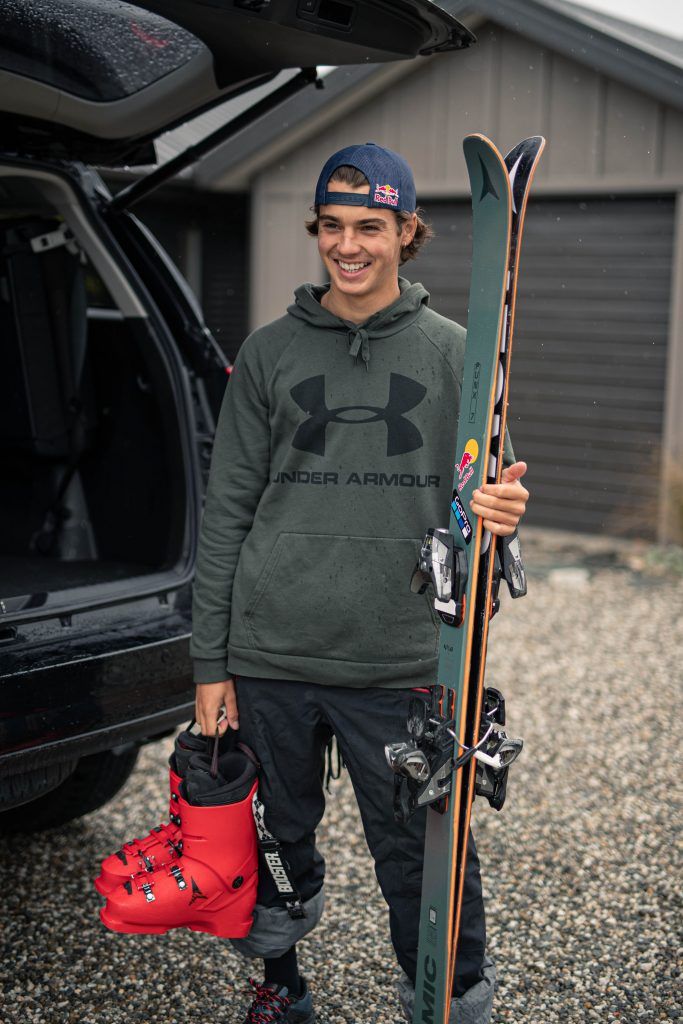
You’ve got all these followers, you’ve got girls with signs up asking you to marry them and you’ve achieved a lot, is it hard to keep that perspective and balance as well?
No, I don’t find it hard at all, I have an older brother to keep me in check, and I have a really good friend group around me that are fully honest with me. I’ve got good people around me to keep me grounded. That’s something that I really, value a lot.
Surround yourself with people who you trust and people who you know that if you are stepping out of line, they’ll tell you to stop doing that. You can really trust that they’re saying that with the best intentions in mind.
Is it a New Zealand thing? Are there dicks on the circuit?
Yeah, I think it is just a New Zealand trait. There’s no dicks on the circuit, but there are definitely some people who are more confident than others and some you like more than others. I’ve always been brought up to be extremely humble, to be extremely thankful and that’s something which I value a lot. I’ve just got good people around me to make sure that that happens.
With the negative side of that as well, the old New Zealand Tall Poppy thing, does that upset you?
Mmm, I definitely think it’s a thing. But for me, I don’t like to be defined by what I’ve done. My dream is to be defined by, not just my skiing, but because I was a really good person as well.
It’s hard not to be shaped by your success though, right?
It is. And of course, that’s going to come into play some of the time. But I don’t want it to 100% define who I am.
When you look 10, 20 years in the future, do you have a plan in terms of what you’ll be doing and what sort of situation you will be in?
Yeah, I’d definitely like to have a family. I think that’d be pretty cool. I would also like to work a normal job. I know skiing is not going to last forever. So, in the next 10 years, I’d like to get hopefully get some sort of qualification to lead me into a job after skiing.
So really just to be a typical family person, but also be able to travel around and take the family on surfing and skiing holidays would be fun.
Any areas that you’d want to get a degree in?
Not too sure. I’ve got a few little ideas, whether it’s in marketing or media. I honestly don’t know.
I could find my passion in the next five years and want to study that, I never know. But there’s definitely a few things which I have in mind that I’m definitely thinking about.
You’ve had an incredible childhood and an incredible run already in terms of your achievements and your experiences. Do you sometimes look at other people in your age group with a bit of envy because they have had a more conventional childhood?
Yeah, definitely. For example, I look at my friends having school holidays or going on school camp and always having their mates around. I haven’t been on many school camps and didn’t have a school ball to go to. There’s definitely little things that I’ll be like, ‘Oh, I wish I could be a normal kid.’
But then I don’t want to be normal because then I wouldn’t get to experience everything that I’ve got to experience in my life. I’m extremely thankful that I have experienced those things, I wouldn’t change it for anything. Sometimes I wonder what that would be like. It’s more wondering about the experience, rather than wanting to do it.
When you look back at all of those incredible experiences that you’ve had, is there a really defining moment that is a pinnacle of your experiences so far?
Obviously an Olympic medal is up there. But it’s more than the medal it’s about performing at my very best on the day and then being able to share it with everyone around me and them being happy and it was that, that made me so happy. It was pretty crazy.
But I think the one outside of that would be watching my brother get second at the X Games. We’d grown up skiing together and grown up competing and then to see that it was actually possible to get an X Games medal was like, ‘Woah, we’ve made it. This is possible and this is actually happening.’ It’s not just a childhood dream anymore. This is a thing.
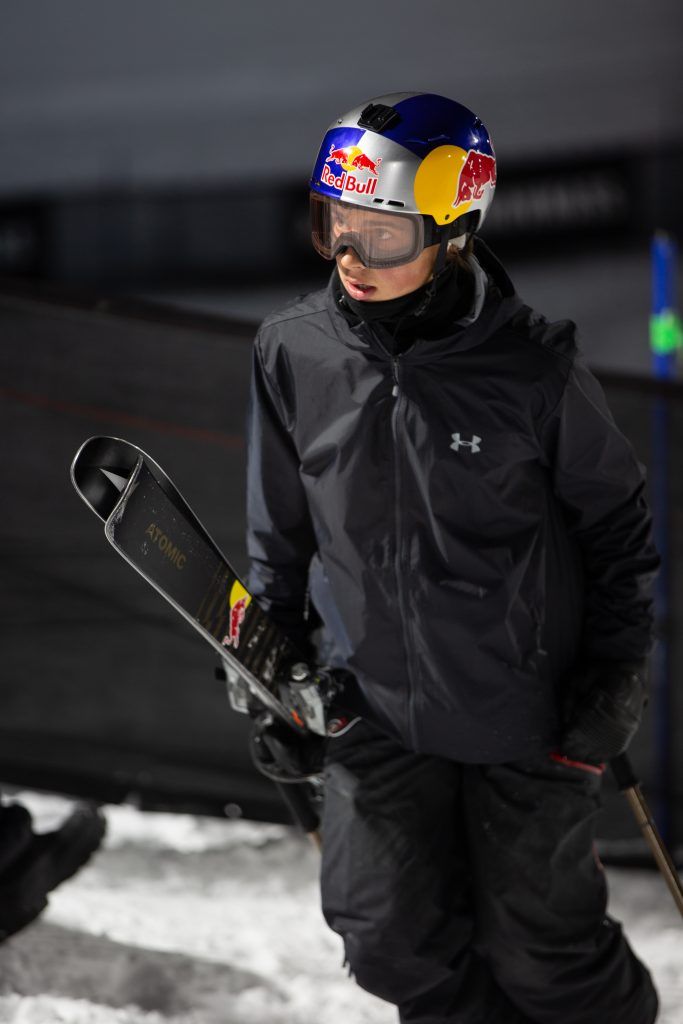
The relationship that you have with your brother is pretty cool. As far as brotherly relationships go, how much of that is as a part of your success?
A huge, part of my life. Part of my success and part of my achievements is because I’ve got a training partner/best mate/brother all the time that I can always talk to. We do lots of the same tricks and we can talk about how they feel and understand exactly what each other is talking about. We can feed off each other when we’re training and that pushes us.
Imagine having one of your direct competitors as your best mate and your brother traveling around with you, both pushing you to the max. We’re both pushing each other to the max. Every competitor’s dream is to have someone in there pushing them.
So what’s the recipe? Is it 50% competition, 50% support? How does it work?
It’s competition when it needs to be competition and then it’s 100 percent support when it needs to be 100 percent support. I’m not saying at the top of the course we won’t talk to each other. We’ll have chats and we’ll have laughs and we’ll have jokes. It’s awesome. But we know when each other just needs the space to be a competitor.
We’re focused on what we need to do as individuals because we are in an individual sport and we’re the only ones that control what we do in our run. But then as soon as the event’s over, we’re just friends. Back to best mates, back to brothers and same as before the event. We’re laughing and joking on the way to and home from the competition.
Obviously we have different competition routines. He likes to listen to music when he warms up, I don’t. He likes to do this and I like to do that. It’s just different little things when it comes to competition. But outside of competition, we’re best mates and brothers and it’s the coolest thing.
Looking at long-term goals, how important is to break things down into bite-sized pieces as well?
Oh, so important. When you eat a meal, you don’t eat it all in one go. You take your time and you have little bits. That’s exactly the same with the goals. You have a big goal and you dissect it into little parts that you can achieve easily.
So if your big long-term goal is to win an Olympic gold, well then what do I need to do to get to that Olympic gold? I need to go to here to learn this trick. And then three months down the track I need to put this trick into a run. And also at the same time, I want to increase my strength and mobility by 30 percent. Or I want to increase my mental health by meditating every day.
Just those little one percenters that add up to that big goal are the most important things.
Do you meditate every day?
No, I don’t. I just used that as an example. I definitely do mindfulness if I feel stressed out. I’ll definitely lie down or I’ll have a cold shower and take some breaths while I’m in the shower just to clear my head. That’s always good. I’ve always wanted to try this new cold water therapy though. I’ve been seeing that trend go around recently.
What sort of thing, apart from a nationwide lockdown for four weeks, stresses you out?
Just normal life stuff. Whether it’s a lot of emails to do or going to a gym session when I don’t want to go to the gym or someone’s nagging me about something.
Just normal, normal things. Everyone gets stressed out by things and everyone has different ways of dealing with that stress.
We have spoken a lot about success and about what you’ve achieved, but how do you deal with failure along the way?
I turn the frustration/anger from failure into drive to succeed. Obviously when you fail, you get pretty down about it and you feel pretty angry for maybe a couple of hours. But then I take a step back and look at why I failed and what I did wrong and then turn that into positives. “I’m going to work on this so that I don’t do that wrong again” or “I’m going to work on this, so that doesn’t happen again.”
You turn it into positives. After you go wrong, each time you have a debrief and you say, “what did I do wrong specifically?” And that helps you make a plan in your head about why and how you’re not going to do that again.
Does the physical danger of what you do run through your head at all?
Of course. There’s always the risk that you’re going to get an injury. I know it sounds bad and I don’t really like to say it, but there’s a risk of death and that’s something which I’m willing to take. And at the end of the day, it’s all calculated. I’ll never just go and throw myself into a trick I’ve never even practiced before. There’s no way I would ever do that because that’s just not calculated.
Taking a step back and actually thinking, ‘Oh, am I ready for this? How can I prepare myself so that I am ready for it?’ Really calculating risk is a big part of not getting injured. But of course, we’re humans. We mess up every now and again and we have to deal with the consequences of messing up. That’s just part of the sport.
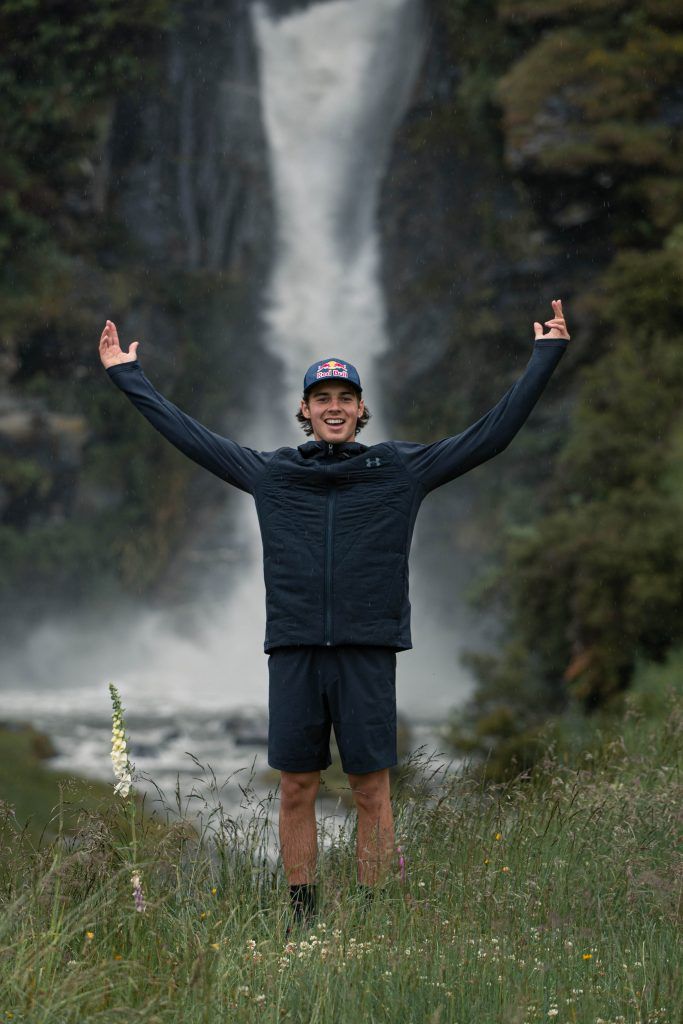
What’s going through your head when you are mid-air in the middle of a trick?
Not much, to be honest. I have my music on full volume and I won’t really hear it. It’s just going off a feeling in a way. You don’t really realise what’s going on, but when you do realise something’s going wrong, that’s a pretty scary feeling.
You’ll be like, ‘Oh no, I’ve messed this up and now I’m just holding on.’ You don’t really think about much because you’re so focused and in the moment of what you’re doing.
What are you listening to?
I listen to quite a lot of house and techno. Not what you’d expect, but I’m quite into that genre of music. But then it changes every day. Sometimes I could be listening to heavy metal because I want to get a bit more hyped up. Or I could be listening to really soft, slow indie rock.
I feel like I have to have such a wide range of music because every type of genre has a different effect on people’s emotions. I need to know, ‘Oh, I’m feeling like this, what music can I listen to to get me out of this mood and into a mood ready to go skiing?’ I have to have all these different types of music and trial what works and what doesn’t work.
Could you tell what people are listening to by then by the rhythm, the cadence, the way that they compete?
Yeah, you can kind of tell what people are listening to. Because we’re all on the same tour and we’re the same group of guys that follow each competition, you can tell, he likes to listen to music that’ll pump him up. Or he listens to music that’ll calm him down and make him a bit slower. You can see it in the body language.
Is there much economic viability being a freestyle skier in New Zealand? Is there much support there for you?
Yeah, there is quite a bit of support. Luckily we are a government-funded sport. We are part of High Performance Sport New Zealand as a government body under Snow Sports New Zealand. So the program gets funding to cover some of the training facilities, gyms, accommodation while we’re overseas and stuff like that.
But then the support from private sponsors like Red Bull and Under Armour is amazing. It’s always been a dream of mine to be sponsored by Red Bull and then given the opportunity to work with Under Armour came along in January, that was so cool.
I knew the guys over at Under Armour and I knew that they had a great product range that I could really use the benefit of in my training/competing so it was a good fit for us both. It’s an honour to wear that UA on my chest.
And what’s part of that deal? Do you have to go out and talk to the community through videos?
Yeah a little bit but it’s a little bit more than the marketing, and promotional stuff.
A good partnership has benefits for both sides and so to get the opportunity to work with a brand that you actually see the benefits in is huge. I’m always wearing their stuff and being loyal is a big part of it as well.
Out of the relationship, what else do you want to achieve? Is it about encouraging younger kids to come through and get into the sport?
Yeah, for sure. I want to really make an effort to improve the grassroots side of skiing in New Zealand. But it’s more than skiing it’s about just getting kids outside and enjoying being active. It’s obviously changed my life so much and I would love to be able to see it change other people’s lives as well.
A thing for me is hopefully trying to come up with an initiative to get as many people as we can to go skiing. It’s not as accessible as playing rugby in New Zealand or not as accessible as playing hockey and I’d like to change that in some way. So hopefully in the next wee while, we can make that happen.
What are some of the things that need to happen to make it more accessible?
That’s a hard one, I’m not really sure. I would have to sit down with people and talk about that. I think a big thing is cost. Not everyone lives with a mountain close by. Say if you live 100km away from the mountain, that’s $30 worth of fuel to get to the top of the mountain. Then $100 for a lift pass. It gets expensive.
I think the ski resorts all realise this and they have great valued first time packages, but it then has to move to the intermediate level skier.
Do you think that you just always had this natural talent? Nature versus nurture, what do you think it was?
My mum and dad were both keen skiers and thought it would be a fun thing to do as a family and having an older brother made it easier as well. Ever since I was six months old, I was sleeping in my dad’s backpack while he was skiing.
I think its a little bit of natural talent for balance, etc, but then having the opportunity at a young age to learn stuff. I think possibly because I started so young, your body picks up on things a lot easier than when you’re a bit older. I definitely think that has something to do with it.
Would there be things that you’ve taken from this world of skiing, in terms of how you deal with stress, how you deal with high speed calculations, that you could use for anything else?
Yeah, 100 percent. I can definitely see things that I’ve learned in skiing translating into everyday life after skiing. Breathing techniques, risk management, people skills. Obviously when I’m traveling around, I experience a lot of different cultures and talk to a lot of different people, so I feel like I built up pretty good people skills to the point that I can have a conversation and make conversation with someone I’ve never met before within the first five minutes.
I can’t speak any other languages other than English, but I’m trying to make that change. I just think people skills, risk management, breathing and those psychology techniques that I’ve learned, can all translate into everyday life in many different ways.
How do you describe the risk management side of things?
I’ve had to do it so many times, assess if it’s really worth it. I’ve never really thought, ‘Oh, I could die here,’ because that’s not very healthy. But I’ve definitely felt like, ‘Oh, what can happen if I do this or what can happen if I do that.’ Just assessing those little things can help your mind comprehend it.
You’ve achieved a lot at a young age, Do you think that, in terms of the risk side of things, does that get harder as you get older? It seems like you have a different appreciation of mortality the closer you get to it.
Yeah, I’ve learned to trust myself a lot. I used to have panic attacks when I was younger athlete, over getting scared of tricks. I use to worry about being worried if that makes sense and that’s not the best mindset. But I’ve worked with sports psychologists and I’ve learnt certain techniques that have helped me get over that.
With age, I’ve matured a lot and I actually look at situations more logically, rather than just making them really irrational and out of proportion. Obviously, being a risk taker, I’ll be like, ‘Stop it. I’m just going to try it and we’ll see what happens.’ That’s just the fun of it.
There’s a little bit of that unknown and that’s also an important part. I just have to accept that I am in a dangerous sport and I have to do everything I can to not get injured. Touch wood.
What’s the best piece of advice you’ve ever been given?
I think it would be to control the controllables. Not to try and control stuff that’s out of your control. You can’t control the weather. You can’t control how other people are feeling. I think that’s been a really big thing for me.
You can’t control what’s happening right now. It’s out of everyone’s control and all we can do is do our part and make sure that we’re sticking to the rules so that we can save those lives, just as Jacinda has said many times.
Photo Credit: Logan Dodds (off snow) and Tommy Pyatt (on snow)

